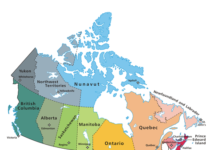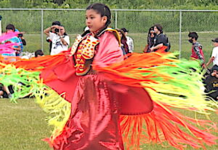To the Editor:
We live in an odd era where the approach of some is to cancel or attack historical figures as a way of sending them down an Orwellian memory hole, this on the justification they were not perfect, and therefore should be expunged from the historical record.
Case in point? Back in 2021, someone threw red paint on the Edmonton statue of Winston Churchill in a downtown square named after the wartime leader. In the United Kingdom in 2020, the Churchill statue outside Parliament was boxed up. That decision was taken to prevent more attacks like an earlier one where vandals spray-painted the words that Churchill “was a racist” across the plinth.
Of course, in Canada, statues of our own historical figures have been regularly attacked or removed over the past decade. That includes ones of John A. Macdonald in Hamilton, Victoria and Montreal, or Queen Victoria in Winnipeg, and of British Columbia’s first Supreme Court Justice, Matthew Begbie.
We would like to focus on Winston Churchill and the attacks on him given his legacy as the statesman who, almost alone, warned the world for a decade about the dangers of Adolf Hitler and his genocidal German Nazis. Churchill was ignored and shunned for doing so. He was also, once Prime Minister as of May 1940, key to defeating the Axis Powers.
We have an interest in preserving and promoting the legacy of Churchill. This is in part because one of us (van Esch) served in Canada’s Armed Forces Reserve for 4½ years and knows full well that without Churchill’s leadership, much of the world would likely have fallen into a new dark age, starting in the 1940s. The other (Milke) is the volunteer President of the Calgary Churchill Society and President pf the Aristotle Foundation which seeks to inject reason into today’s debates.
Specific to Churchill, the vandalism is regrettable because it – and those who downplay its importance in public commentary, make the mistake of demanding an historical figure to exactly reflect someone’s views today, and that anything less means Churchill or other critical figures in history should be “cancelled.”
We disagree.
Briefly, and lest we forget, absent Churchill and his bloody-minded refusal to consider surrendering to the Nazis, it is entirely likely that other British politicians would have surrendered or concluded another disgraceful treaty with Hitler akin to what Prime Minister Neville Chamberlain agreed to in Munich in 1938.
As for Churchill the man, criticisms of him are often based on myths such as the false notion he was responsible for/did nothing about the wartime famine in Bengal. (Historian Zareer Masani decisively rebutted this false allegation in his article, “ Churchill and the Genocide Myth .”) Or they assume a man with 19th-century views on say, imperialism, should be cancelled precisely because he was born in the 19th century.
But we can honour and celebrate history’s fighters despite views we now find distasteful or the mistakes they made. We too have views and flaws that future generations will no doubt think odd or condemn. The proper way to remember history is to add to it, rather than subtract from it as cancel culture too often does.
Here, consider some examples of Indigenous service to Canada that deserve to be remembered:
Alex Decoteau hailed from the Red Pheasant Cree Nation Saskatchewan. Inclined to athletics, he was a member of the 1912 Canadian Olympic Team in Stockholm. He put his physical prowess to use as a runner in the First World War, where, tragically, he lost his life by way of a sniper’s bullet shortly before his 30th birthday. He was buried in Passchendaele New British Cemetery in Belgium and was given a traditional Cree ceremony in 1985.
Oliver Milton Martin was a Mohawk of the Six Nations Grand River. A remarkable man, he served in both world wars, ending his service in 1944 with the rank of brigadier. During the Second World War, he commanded multiple infantry brigades and was the officer in charge of training hundreds of new recruits for overseas combat. After the war, Martin took up various occupations, eventually becoming a provincial magistrate in Ontario. He was the first Indigenous person appointed to such a position in the province, serving until his death in 1957.
Mary Greyeyes Reid was a member of the Muskeg Lake Cree Nation. She was the first Indigenous woman to enlist in the Canadian Army and she served in the Second World War. She was sent overseas to England and continued working in London until 1946 when she was discharged. After returning home, she would raise her voice in calling for full voting rights for Indigenous Canadians, demonstrating that it is possible for Indigenous people to fight for Canada even while working to make Canada a better place to live. She would reflect on her wartime service, calling those years the “best of her life.”
We can remember statesmen such as Churchill, and also remember Indigenous people who served in Canada’s armed forces in both world wars. Of course, we also know that Indigenous people served in the Canadian Armed Forces in other conflicts as well. It was the shared sacrifices that enabled Canada to progress to the free and flourishing country it is today.
We do not cancel past heroes because they do not fit current expectations. We remember Churchill in his bravery and courage as he motivated and led his country, and the Commonwealth, towards victory. We remember Canada’s soldiers, including the Indigenous soldiers who were denied voting rights, yet still responded to the call to service.
We remember them all, not because they were perfect or fit within a modern mould, but because their sacrifices and courage helped further the freedoms we enjoy today.
Sincerely,
Mark Milke & Kelvyn van Esch
———————————————————
Mark Milke is the president of the Aristotle Foundation for Public Policy and also of the Sir Winston Churchill Society of Calgary. Kelvyn van Esch is Mohawk and served in the Canadian Armed Forces Reserve.
The Aristotle Foundation for Public Policy is a new think tank that aims to renew a civil, common-sense approach to public discourse and public policy in Canada. We champion reason, democracy, and civilization so that all can participate in a free, flourishing Canada.











